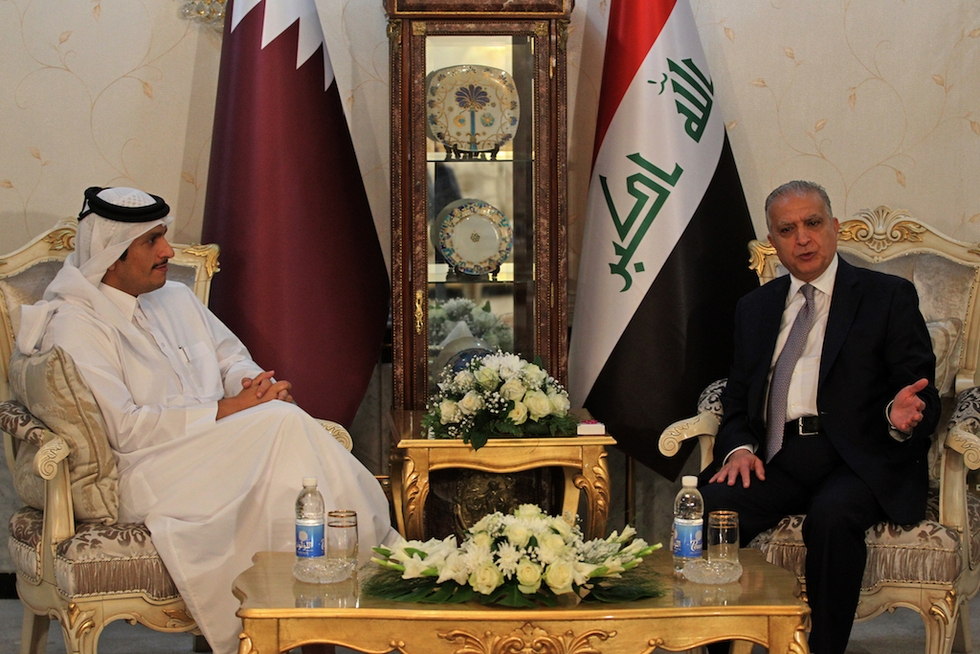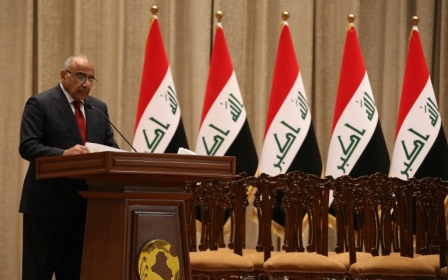Iraq 'not obliged' to abide by US sanctions on Iran, says foreign minister

Iraq's foreign minister has said that his country is "not obliged" to abide by sanctions imposed by the US against Iran and would be pursuing options to continue trade.
On 20 December, the US granted Baghdad a 90-day extension to a waiver on abiding by the sanctions that were reimposed on the Islamic republic in November.
Trade between the two neighbouring countries is thought to amount to around $12bn, while Iran provides around 40 percent of Iraq's electricity needs.
Although Iraq faces possible censure by the US if it fails to cease its trading with Iran by the end of the waiver period, foreign minister Mohammed Ali al-Hakim said his country could continue relations with Iran.
"These sanctions, the siege, or what is called the embargo, these are unilateral, not international. We are not obliged [to follow] them," he said, speaking to a gathering of journalists on Wednesday.
He said a number of "possibilities" had been suggested that could keep trade routes open with Iran, "including dealing in Iraqi dinars in bilateral trade".
Last month, Iraq's President Barham Salih visited Iran and discussed strengthening economic ties between the two countries with Iran's President Hassan Rouhani.
"The economic exchange between the two countries is $12bn and we can increase this to $20bn,” said Rouhani after the meeting.
The Iranian rial has lost around half its value against the dollar since US President Donald Trump announced he was withdrawing from the 2015 nuclear deal in May and reimposing sanctions.
Iraq faces chronic power shortages that often leave homes without electricity for as much 20 hours a day - a key driving factor behind mass protests this summer.
To cope with the shortages, Iraq imports up to 28 million cubic metres of Iranian gas a day for power generation and also directly imports up to 1,300 megawatts of Iranian electricity.
That dependence is uncomfortable for Washington, which sees Tehran as its top regional foe.
In early December, US Energy Secretary Rick Perry discussed sanctions with Iraq's ministers of oil and electricity in Baghdad, and said Iraq should partner with US companies to become energy independent.
"Working together, the US and Iraq can develop Iraq's oil, gas and water industries," Perry said.
Iraq's electricity ministry said it could stop relying on Iranian electricity within two years, but that halting gas imports would be much more difficult.
One solution would be developing Iraq's ability to capture gas flares, the gas set alight during oil extraction.
The World Bank estimates that wasted flares represent an annual loss of about $2.5bn - enough to fill the gap in Iraq's gas-based power generation.
New MEE newsletter: Jerusalem Dispatch
Sign up to get the latest insights and analysis on Israel-Palestine, alongside Turkey Unpacked and other MEE newsletters
Middle East Eye delivers independent and unrivalled coverage and analysis of the Middle East, North Africa and beyond. To learn more about republishing this content and the associated fees, please fill out this form. More about MEE can be found here.




